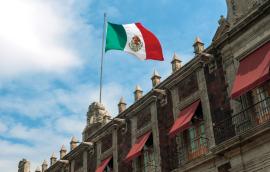State-building, the Modernization of the Legal System, and Institutional Effectiveness in Mexico: Notes on the 2013–2014 Energy Reform
Nobody can ensure that the economic gamble underlying the 2013–2014 energy reform will achieve the desired or expected success. However, the author presents evidence demonstrating that Mexico has gradually been building the institutions that will be able to perform governmental operations with reasonable effectiveness.
Héctor Fix-Fierro November 14, 2017






